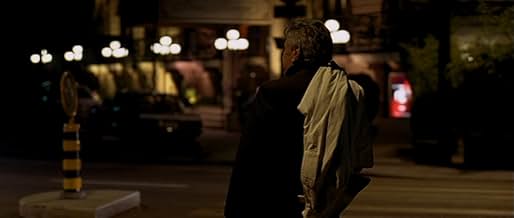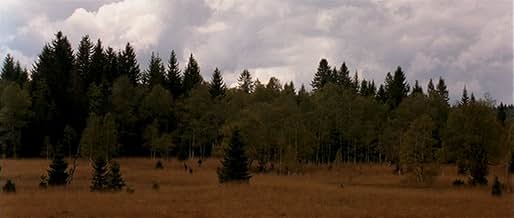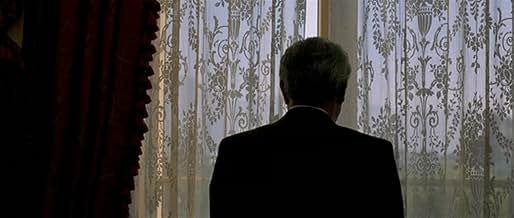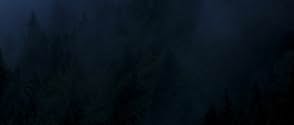L'intrus
- 2004
- Tous publics
- 2h 10m
IMDb RATING
6.6/10
2.3K
YOUR RATING
An emotionally cold man leaves the safety of his Alpine home to seek a heart transplant and an estranged son.An emotionally cold man leaves the safety of his Alpine home to seek a heart transplant and an estranged son.An emotionally cold man leaves the safety of his Alpine home to seek a heart transplant and an estranged son.
- Director
- Writers
- Stars
- Awards
- 4 nominations total
Yekaterina Golubeva
- La jeune femme russe
- (as Katia Golubeva)
Florence Loiret Caille
- Antoinette
- (as Florence Loiret-Caille)
- Director
- Writers
- All cast & crew
- Production, box office & more at IMDbPro
Featured reviews
The film is not visually stunning in the conventional sense. It doesn't present a series of pretty pictures. Instead it is a visually interesting film. It forces the viewer to constantly process or perhaps imagine the context of the various shots. This sort of thing is easy to try but hard to succeed at. The film refuses to use the crutch of a genre to help the less than fully engaged viewer get what's going on. Instead the film touches on and moves through a number of different genres. The trick to loving the film is being able to enjoy this playfulness. I suspect 99% of North American viewers will just not get it. If you try to pin down the narrative of this film, or the philosophical message, or the symbolist structure, etc. you will waste your time. There are none of these. The film only feints towards these genres and others at times. The only unifying force in the film is Claire Denis's own sense of what fits together. There are so few feature length films that come close to satisfying Kant's description of what art is, namely the enjoyment of the power of judgment itself instead of simply subsuming experiences under concepts. Film usually takes the easy way out and opts for the simpler pleasure of understanding what's happening. Most film is not art. Most film doesn't come close to art. When a film does, as this one does, and is still enjoyable by a large range of viewers, it's something of a miracle. My on negative comment is that at times I find the film too simplistically buying in to the various narrative threads that run through it. The Tahiti father-son narrative, even though it's not exactly conventional, ends up making things a little to clear and simple. It dominates too much.
"The Intruder (L'Intrus)" is a visual pilgrimage through a mysterious life.
Grizzled Michel Subor plays "Louis Trebor" like Jason Bourne as an old man with a hidden past, living simply in an isolated hut in the woods for justifiably paranoid reasons (but attracting pretty young women who can be useful to him). We learn more about him through dreams, flashbacks and a journey that may unfold chronologically or not, as well as through his brusque interactions with family, lovers, business associates and a striking nemesis. Like "The Limey," the film resonates with parent/child regrets and a suspicious past revealed through clips from an old film with the same actor as a young man (here Paul Gégauff's 1965 adventure film "Le Reflux").
In a complete contrast of moods, we meet his son Sidney (Grégoire Colin) who has to be the sexiest house husband in the world, as he sweetly and seductively does household repairs and cares for a baby, a toddler and every need of his working wife. Surely director/co-writer Claire Denis must have created him as a woman's fantasy if ever there was one and a lesson to other filmmakers on filming foreplay. There's an additional extended scene where he seeks his father in the woods while carefully carrying his angelic baby in a pouch. He is everything his father is not and has every relationship his father is incapable of sustaining; no wonder he thinks his father is "a lunatic." I spent the rest of the film in dread that something bad would happen to him as the true nature of the heart of his alienated father is very gradually played out before our eyes.
The film is a puzzle, but Subor is ruthlessly fascinating as we watch him traverse countries and negotiate nefarious deals, and the voice-over narration for Denis's "Beau Travail" was annoying anyway. We have to figure out from skylines and incidental signage that he is traveling to Geneva, Korea and the South Pacific. Time passing is indicated by the seasons changing and scars being created and healing. There are lots of images of water for cleansing and for distancing.
Continuing her fascination with the morphing of colonialism into globalization, as well as playing a bit on stereotypes of the Mysterious Orient and Russian criminals, Denis has incorporated elements from Robert Louis Stevenson, Paul Gauguin and Marlon Brando's Tahiti idylls and a 40-page memoir by French philosopher Jean-Luc Nancy, the last for the title and heart-transplant plot used for an ironic theme of limited immortality which does have consequences.
While "Louis" thinks he's succeeded in being above boundaries, rules and morals, there is some amusement in the last act as the locals don't quite know what to do with him and try to help him solve his quixotic odyssey, even as he again lies in isolation.
Several people in the audience left in frustration at the elliptical, but strikingly beautiful, story telling method. The unconventional narrative does raise a lot of plot questions on details.
Grizzled Michel Subor plays "Louis Trebor" like Jason Bourne as an old man with a hidden past, living simply in an isolated hut in the woods for justifiably paranoid reasons (but attracting pretty young women who can be useful to him). We learn more about him through dreams, flashbacks and a journey that may unfold chronologically or not, as well as through his brusque interactions with family, lovers, business associates and a striking nemesis. Like "The Limey," the film resonates with parent/child regrets and a suspicious past revealed through clips from an old film with the same actor as a young man (here Paul Gégauff's 1965 adventure film "Le Reflux").
In a complete contrast of moods, we meet his son Sidney (Grégoire Colin) who has to be the sexiest house husband in the world, as he sweetly and seductively does household repairs and cares for a baby, a toddler and every need of his working wife. Surely director/co-writer Claire Denis must have created him as a woman's fantasy if ever there was one and a lesson to other filmmakers on filming foreplay. There's an additional extended scene where he seeks his father in the woods while carefully carrying his angelic baby in a pouch. He is everything his father is not and has every relationship his father is incapable of sustaining; no wonder he thinks his father is "a lunatic." I spent the rest of the film in dread that something bad would happen to him as the true nature of the heart of his alienated father is very gradually played out before our eyes.
The film is a puzzle, but Subor is ruthlessly fascinating as we watch him traverse countries and negotiate nefarious deals, and the voice-over narration for Denis's "Beau Travail" was annoying anyway. We have to figure out from skylines and incidental signage that he is traveling to Geneva, Korea and the South Pacific. Time passing is indicated by the seasons changing and scars being created and healing. There are lots of images of water for cleansing and for distancing.
Continuing her fascination with the morphing of colonialism into globalization, as well as playing a bit on stereotypes of the Mysterious Orient and Russian criminals, Denis has incorporated elements from Robert Louis Stevenson, Paul Gauguin and Marlon Brando's Tahiti idylls and a 40-page memoir by French philosopher Jean-Luc Nancy, the last for the title and heart-transplant plot used for an ironic theme of limited immortality which does have consequences.
While "Louis" thinks he's succeeded in being above boundaries, rules and morals, there is some amusement in the last act as the locals don't quite know what to do with him and try to help him solve his quixotic odyssey, even as he again lies in isolation.
Several people in the audience left in frustration at the elliptical, but strikingly beautiful, story telling method. The unconventional narrative does raise a lot of plot questions on details.
First of all, I liked very much the central idea of locating the '' intruders'', Others in the fragile Self, on various levels - mainly subconscious but sometimes more allegorical. In fact the intruders are omnipresent throughout the film : in the Swiss-French border where the pretagonist leads secluded life; in the his recurring daydream and nightmare; inside his ailing body after heart transplantation.... In the last half of the film, he becomes intruder himself, returning in ancient french colony in the hope of atoning for the past.
The overall tone is bitter rather than pathetic, full of regrets and guilts, sense of failure being more or less dominant. This is a quite grim picture of an old age, ostensibly self-dependent but hopelessly void and lonely inside. The directer composes the images more to convey passing sensations of anxiety and desire than any explicit meanings. Some of them are mesmerizing, not devoid of humor though, kind of absurdist play only somnambulist can visualize.
The overall tone is bitter rather than pathetic, full of regrets and guilts, sense of failure being more or less dominant. This is a quite grim picture of an old age, ostensibly self-dependent but hopelessly void and lonely inside. The directer composes the images more to convey passing sensations of anxiety and desire than any explicit meanings. Some of them are mesmerizing, not devoid of humor though, kind of absurdist play only somnambulist can visualize.
It's certainly beautiful, as must be any movie featuring the outstanding cinematographer Agnès Godard and the criminally underacknowledged sound mixer Jean-Louis Ughetto. Most movies don't give us images as warm as Michel Subor drinking with a Pusan local or as vivid as a flashback to a boat's arrival at a French Polynesian island. But from the director of "Friday Night" and "Beau Travail," that's not enough.
Subor's character, Louis, is an intruder; various people are intruders in Louis's life (notably Béatrice Dalle); Louis even has an intruder inside his body - his transplanted heart. The heightening of Louis's condition, at first achieved through long looks at his huge chest scar, becomes absurdly literal when we see a bloody organ lying in the snow. All this is meant to make some vague point about rejection, and how communities and their outsiders relate to each other, but except in the Korean section and parts of the Tahitian one, Denis's use of photogenic isolated locations defeats her theme by not giving Louis enough human life to interact with. Perhaps I'm grading too harshly, but I expect great things from a Denis movie, and I didn't see them here.
Subor's character, Louis, is an intruder; various people are intruders in Louis's life (notably Béatrice Dalle); Louis even has an intruder inside his body - his transplanted heart. The heightening of Louis's condition, at first achieved through long looks at his huge chest scar, becomes absurdly literal when we see a bloody organ lying in the snow. All this is meant to make some vague point about rejection, and how communities and their outsiders relate to each other, but except in the Korean section and parts of the Tahitian one, Denis's use of photogenic isolated locations defeats her theme by not giving Louis enough human life to interact with. Perhaps I'm grading too harshly, but I expect great things from a Denis movie, and I didn't see them here.
Like another commentator, I have hoped for a film as good as 'Chocolat' in vain. Still, obscure and rambling as this is, it's interesting, often beautiful, and I sucked some kind of story-satisfaction out of it, perhaps more satisfying because it was hard-won. Less so because some of the puzzles - like why does the protagonist have two identical sons, one in Tahiti and one in France, one alive and one dead? - seem to be there just to obfuscate, as though the film-maker were holding her hand in front of your eyes. Fantasy and symbolism are fine, but there has to be some structure in which to classify and interpret them. Other puzzles, like who most of the characters are and why they are doing what they are doing and what it has to do with the 'story', are part of the challenge of Mlle Denis's narrative technique, which I hope she continues to develop and refine to the point where everyone understands inexpressible things without quite knowing how, instead of not knowing how things are meant to express anything at all.
Did you know
- TriviaArchival footage from Paul Gégauff's Le Reflux is used for the scenes with a younger Michel Stubor.
- ConnectionsEdited from Le reflux (1965)
- How long is The Intruder?Powered by Alexa
Details
Box office
- Gross US & Canada
- $40,853
- Opening weekend US & Canada
- $3,527
- Dec 25, 2005
- Gross worldwide
- $40,853
- Runtime
- 2h 10m(130 min)
- Color
- Sound mix
- Aspect ratio
- 2.35 : 1
Contribute to this page
Suggest an edit or add missing content

























